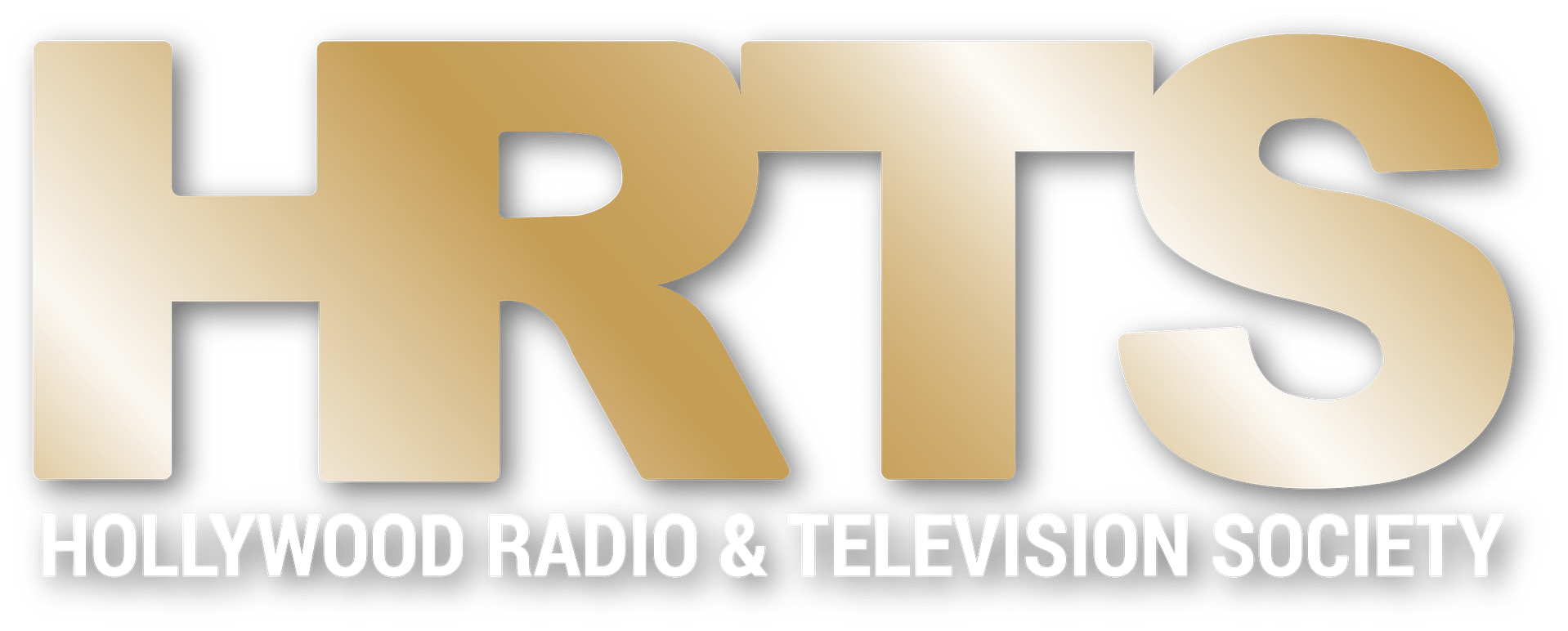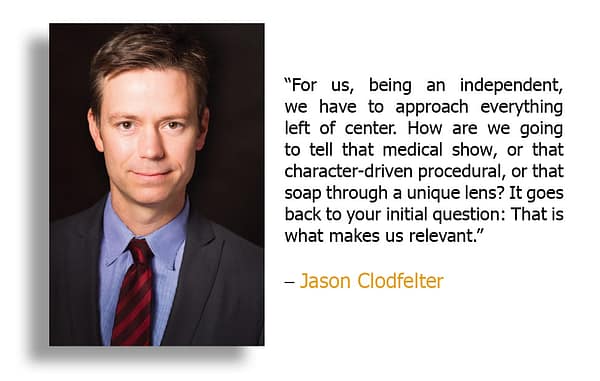Jason Clodfelter is Co-President at Sony Pictures Television. He spoke with JHRTS member Ben Cohen about his path in television, how Sony stands out as an independent studio and some of Sony’s new and upcoming shows. An edited transcript of the conversation follows.
Can you give us some of your background and why you wanted to work in entertainment?
I moved around every two to three years growing up and the one constant in my life was an obsession with Hollywood. At a young age I pursued acting, because that was the only representation of Hollywood when you lived in places like Indiana, Connecticut and Texas. Basically, I knew I wanted to be in entertainment from about the second grade on. After one year at Ithaca College as an acting major I moved to LA to do the whole acting thing. Thankfully, I very wisely went back to school and studied film at USC.
After graduation and pursuing writing for a bit, I transitioned into television by working for the director Paris Barclay who had an overall deal at John Wells Productions. That was my first assistant gig and little did I know how fortunate I was.
What has your favorite memory been from your career thus far?
Well, right now is pretty cool!
I will say I’ve had incredible mentors, whether it was Paris [Barclay], John Wells, Jonathan Levin at Spelling Entertainment, or the folks here at Sony over the last twelve years — I’ve always been surrounded by incredibly smart and caring people, which continues to this day.
These days it seems like networks are insisting more and more on ownership of their content. Being an independent TV studio, how does Sony TV stay relevant in that new paradigm?
Staying relevant is about having the right relationships with talent. Whether it’s overall term deals, director deals, or IP that resonates, it’s ultimately about building something that is undeniable. The Good Doctor and SWAT are both great examples that the broadcasters will still ultimately choose what is best creatively over what is simply a better deal.
Also, sharing ownership is not always a negative. It eases the financial burden to the studio and to the network, which in a business that has more failures than successes is often beneficial.
Another hot trend that you are very well-positioned for is bringing film IP to TV. You just announced the Bad Boys spinoff and Party of Five, among others. Is this going to be a focus for Sony TV going forward, and how do you comb through the decades of film IP you have to find what’s most promising?
It’s not any more of a focus now than it has been in previous years. There’s always the risk of title fatigue, which I do think is a genuine thing. For us it’s really about: Is there a reason to tell that story now? Is there a new take, or something going on thematically in the zeitgeist that truly opens up the story and gives it a reason for being? So honestly, it’s never been a true objective, it just presents itself and it makes sense with a specific auteur, or not. There are a lot of titles every year that we say, “not now, not now,” and then, “Oh, you know what, right now could actually be a perfect time.”
I’m just waiting for the Oliver! musical series.
That would be a blast to do over at NBC with Bob Greenblatt. So, in a heartbeat.
Speaking of IP, you’re developing the Starsky & Hutch series for Amazon, which you have the rights to based off the original series from Spelling-Goldberg. You worked for Aaron Spelling earlier in your career. Happy coincidence, or long-time, secret passion project?
You know what, that one’s a happy coincidence.
Though I’ve always been a massive Starsky fan, it was one of those where we weren’t entirely sure it was the right time given Lethal Weapon. But James Gunn, who is an incredible talent, had an amazing take with Mark and Brian Gunn that really subverted our expectations; essentially, their POV made it undeniable.
The Good Doctor is one of the breakout hits of this network season. It had a long journey: It was based off a Korean format, went to CBS TV first, wound up on ABC. At what point in that journey did Sony TV come aboard, and what about it did you respond to?
After CBS passed and chose not to redevelop it (due to Pure Genius), Daniel took the format around town looking for the perfect showrunner to try a fresh take.
At the same time, David Shore was introduced to it through other means, and the opportunity presented itself for the perfect marriage between David, Daniel’s company 3AD, and EnterMedia Contents who control the format. Ultimately, David had a take that felt authentic and tapped into an emotional journey that hadn’t been experienced on television.
We were incredibly fortunate to have Seth Gordon direct the pilot and cast Freddie Highmore as Shaun Murphy. Also, from the day we pitched it, ABC has been an amazing partner, completely supporting David’s vision.
When you look at international formats, what tells you a show could successfully transition and strike a chord with US audiences?
For us, being an independent, we have to approach everything left of center. How are we going to tell that medical show, or that character-driven procedural, or that soap through a unique lens? It goes back to your initial question: That is what makes us relevant. If it feels like a simple fastball that’s usually where we fail. They’re not going to pick up their fastballs from an indie studio. It has to be a unique and special journey.
You headed drama development before being upped to Co-President of Sony TV in July. What parts of the expanded role are most fun for you, and what parts have been challenging?
I’m having a blast being more involved in the overall financials. In my former job I managed a development budget and helped manage production budgets, but this is a much broader net and I find it fascinating.
The challenges have simply been that every week there’s something I’ve never experienced before — so on one hand it’s exciting because everything feels new and fresh, but on the other hand you don’t always know what you don’t know.
What show currently on the air do you admire and wish you had had a hand in making?
I would say Stranger Things, primarily because it goes beyond simply hitting the zeitgeist — it’s truly representative of my youth and everything that ultimately drove me to Hollywood.
Ben Cohen is a current JHRTS member and former JHRTS Board member. In the little time he isn’t watching or talking about movies and TV, you can find him making absurdly long playlists, laughing at his own bad jokes, and trying to pet every dog he sees. He can be reached at benjaminjcohen1@gmail.com.

